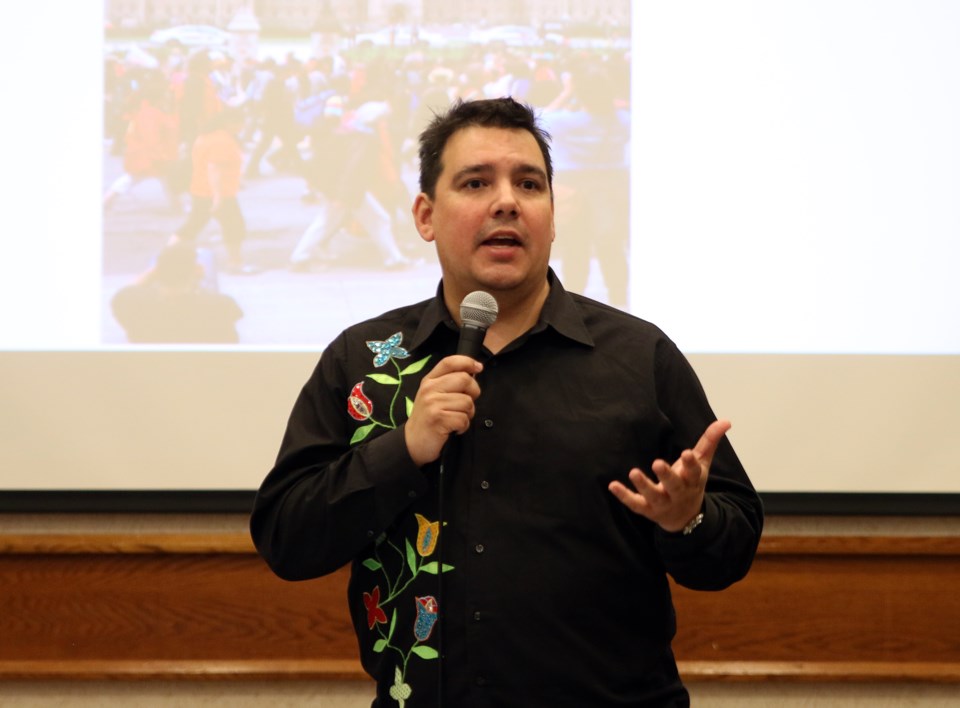THUNDER BAY - Reconciliation in the classroom must go beyond a simple lesson about meaning or history, says a leading Indigenous advocate, writer, and educator.
“It’s not just about teaching a piece of Indigenous literature, although that is very important, it’s also about what goes on the walls, what songs we sing, who we hire, how community is involved, to graduation, to territorial acknowledgements that start out the day,” said Niigaan Sinclair, an associate professor at the University of Manitoba and writer during a presentation in Thunder Bay.
“Reconciliation has to live in all aspects of the school because Indigenous and non-Indigenous people are constantly interacting all throughout the elements of that school.”
Sinclair led a presentation on Wednesday for teachers and staff with the Lakehead Public School Board about Indigenous issues and reconciliation.
The presentation focused on how reconciliation can be offered through school curriculums, school culture, community involvement, and institutional planning.
According to Sinclair, there are failures in the education system, just as there are failures in other institutions in Canada, such as the justice system. He used the examples of the verdicts in the cases of Colten Boushie and Tina Fontaine, which sparked protests and marches across the country.
“Those are evidence to me of failures in Canada to understand situations that Indigenous people have been forcibly put into involving violence and genocide and things are continuing,” he said. “They are still happening to young women and women today, so yes, education has a lot of work to do.”
In a city like Thunder Bay, like all cities across Canada, Sinclair said it is a duty of educators in the classroom to address issues of racism, discrimination, and violence.
“Educators have a responsibility to deal with reality, to prepare Canadians and Indigenous people for what is reality in our world and violence is a very deep reality in the Canada of today,” he said. “It is impossible to be an educator in Thunder Bay without engaging that issue. You would be doing a disservice to young people today who come out into communities and have this right in front of them.”
Jane Lower, student success lead for the Lakehead Public School Board, said she is very pleased to have Sinclair help build on what the school board is already doing to work towards reconciliation.
“We’ve done extensive work in building relationships with Indigenous students and their parents and community,” she said.
Lower said the schools already have student voice committees for Indigenous students, who lead by example and share with educators what they would like to see in local schools.
“We listen and respond to their voice and hopefully we are making improvements to all of our schools,” she said.
But the teachers still have a very important role to play and Sinclair said it is up to them to start students on the path of reconciliation, to share in the reality of the nation’s past, and discuss the issues that remain today.
“For me, education must take it upon itself to engage those historical realities and say enough is enough,” Sinclair said. “Enough is enough of division, of violence, and of genocidal policies within this century. We need to change that and it’s going to start with educators in classrooms.”
